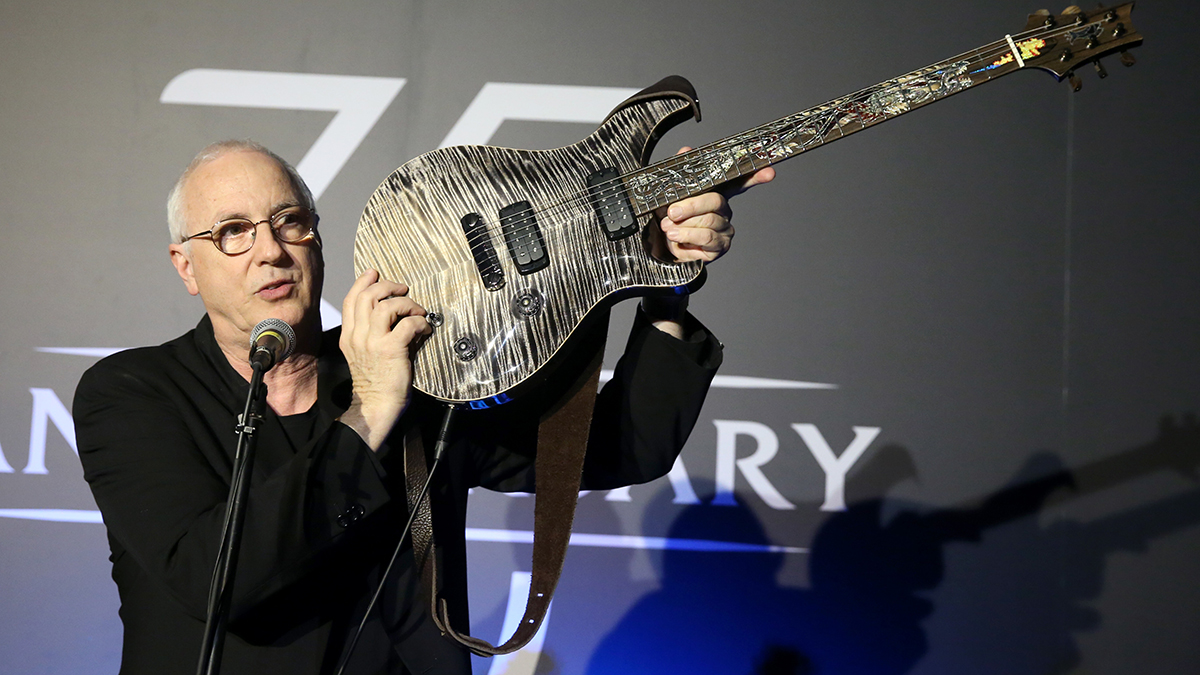“I said, ‘If I could have it my way it would sound like this,’ and I pulled the bass guitar out of the mix”: Why Prince removed the bassline from When Doves Cry
From the beginning, Prince had an inkling that Purple Rain’s landmark single would be better without bass guitar

Though not known so much as a bass player, Prince's basslines on such classics as Let's Work and the Time's 777-9311 proved that he was as accomplished on the bass guitar as he was on the myriad other instruments he played.
An avowed disciple of Larry Graham, Prince kept things funky with ghost-notes, vibrato, and plenty of Graham-esque slap work.
“He's a phenomenal bassist – he plays from the heart,” Rhonda Smith told Bass Player back in 2014. “By watching him over the years and being in such a funky environment, I was able to assimilate some of his style.
“If he wants you to reproduce a feel, he comes over and plays it for you, so you need to be able do it on the spot, which is not easy! As a result, I think I play less and with more taste now, and I'm much more confident.”
Recorded at Los Angeles’ Sunset Sound Recorders in early March 1984, When Doves Cry established Prince as one of the most forward-thinking artists of the decade. It remains Prince’s zeitgeist moment, despite his original bassline proving to be somewhat troublesome.
Speaking to Bass Player in December 2005, Prince said: “When Doves Cry was the last song on Purple Rain to be mixed, but it just wasn't sounding right – it was just sounding too conventional, like every other song with drums and bass and keyboards.
“So I said, ‘If I could have it my way it would sound like this,’ and I pulled the bass guitar out of the mix. Singer Jill Jones said, ‘Why don't you have it your way?’ So I muted the bass track.
All the latest guitar news, interviews, lessons, reviews, deals and more, direct to your inbox!
“Sometimes your brain kind of splits in two – your ego tells you one thing, and the rest of you says something else. You have to go with what you know is right.”
The treatment of When Doves Cry tallies with the Purple One's concept of space in his music – and a shelved bassline is certainly emblematic of that approach.
“Space is what it's all about. I'm always telling people in rehearsal you've got to shut up once in a while. Solo spotlights are fun and everything, but if you make music people want to hear, they'll keep that tape.
“You can listen to one groove all night, but if everyone's playing all over the place all night and not hearing each other – not respecting the music – ain't nobody gonna want to listen.”
Of course, that innate sense of groove is a through line no matter what instrument Prince is playing – and he says being able to tackle both bass and drums is key to his inimitable funk.
“That's the thing about playing both bass and drums – the parts just lock together. Lenny Kravitz is the same way. If you solo his drum part on Are You Gonna Go My Way, it sounds like, hey – he ain't that good. But put everything on top and it comes together. He just gets high on the funk.”

Nick Wells was the Editor of Bass Guitar magazine from 2009 to 2011, before making strides into the world of Artist Relations with Sheldon Dingwall and Dingwall Guitars. He's also the producer of bass-centric documentaries, Walking the Changes and Beneath the Bassline, as well as Production Manager and Artist Liaison for ScottsBassLessons. In his free time, you'll find him jumping around his bedroom to Kool & The Gang while hammering the life out of his P-Bass.
You must confirm your public display name before commenting
Please logout and then login again, you will then be prompted to enter your display name.


